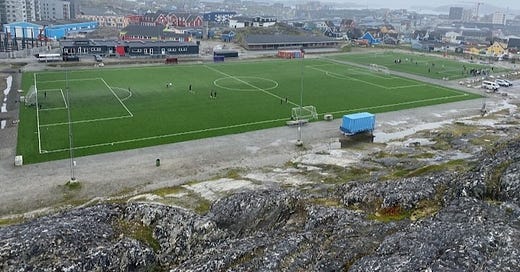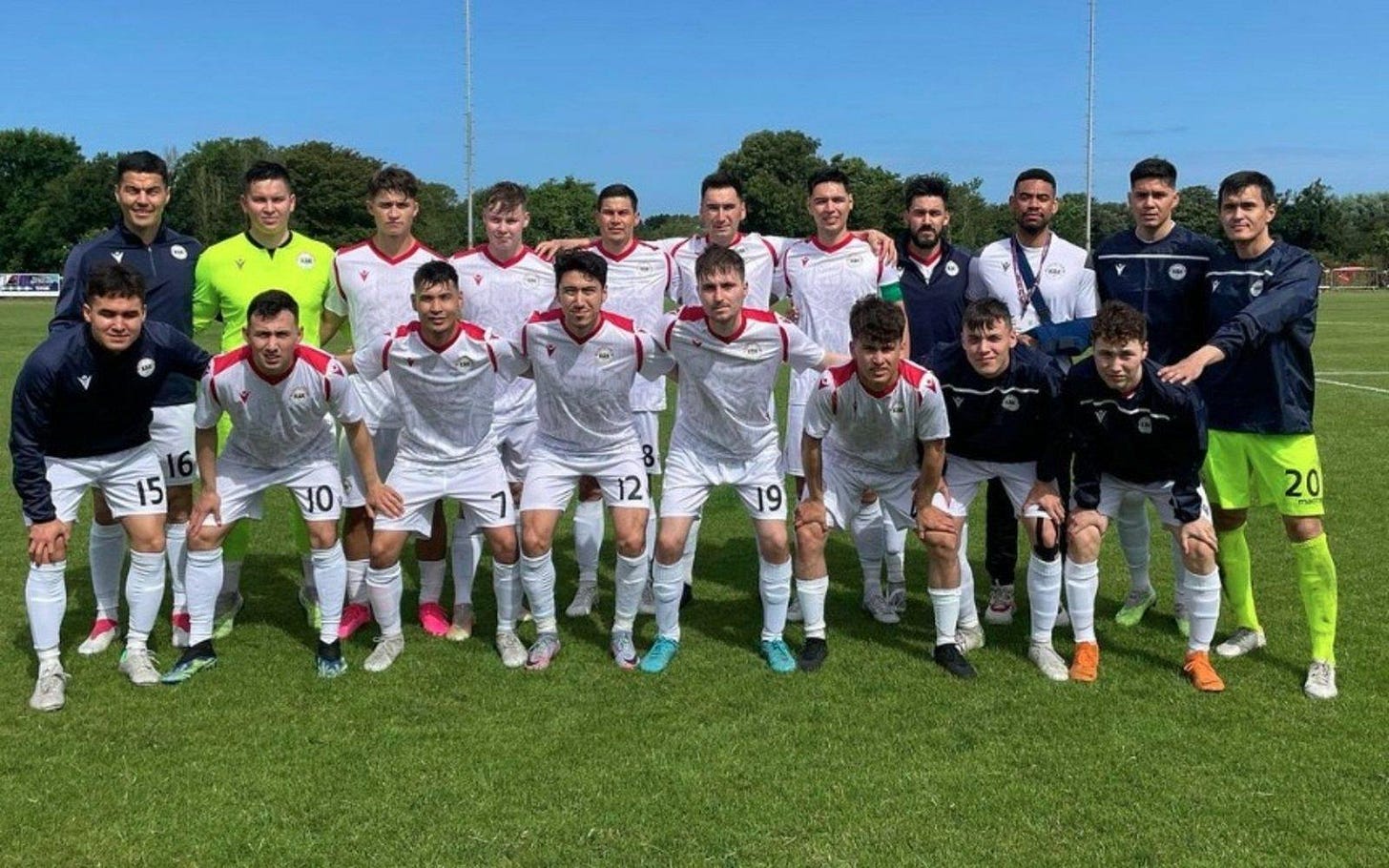Greenland wants to join America - for football, at least
Turned down by UEFA and FIFA, Greenland are on a mission to become members of CONCACAF
They have the players, the coach, the snazzy kits and the support, but Greenland have forever been in the international football wilderness — the national team equivalent of a lone wanderer, miles from civilisation, traipsing through the snowy wastes of, well, Greenland.
All that could be set to change, however, as KAK (Football Association of Greenland) announced plans this week to seek membership of CONCACAF, the confederation for North & Central American and Caribbean nations.
The timing, whether coincidental or calculated, could not be better, given Donald Trump’s insistence this week that the United States taking control of the territory is necessary for international security. Whatever your thoughts — and more importantly, Greenlanders’ thoughts — on Denmark relinquishing power, raising the issue now is going to get plenty of eyeballs on KAK while Google searches for “Greenland” spike.
KAK was founded in 1971 and nine years later, Greenland played their first international match — a 6-0 loss at the hands of the Faroe Islands, which remains their joint-heaviest defeat.
Since then, appearances in international competition has been limited to non-FIFA events, such as the Island Games and precursors to ConIFA tournaments, including the FIFI Wild Cup and the ELF Cup. Giants of the game, like the Isle of Wight and Menorca, became regular opponents. Greenland had to play whoever they could, whenever they got the chance, even risking an international incident with China when organising a match with Tibet in 2001.
That is because, while the Faroes sailed on to FIFA membership in 1988 and UEFA membership in 1990, Greenland’s attempts to join those two bodies have been met more than once by a short, sharp “no.”
Greenland first tried to join the European confederation in the late 1990s, but were turned down. In 2011, they set the goal of acquiring membership by 2020, but barely made progress. Unlike in the late 1980s, FIFA membership can now only be attained once confederation membership has been granted.
There are many reasons why gaining true recognition was always going to be tough, and for UEFA to have misgivings. Greenland is largely inhospitable, it is dark for months on end, travel to and from the island is difficult, travel around the island is difficult, the league season is played over a matter of days and the facilities and pitches are rarely up to standard.
But rather than cite those legitimate concerns, UEFA put a stop to Greenland’s application as they are not an independent, UN member state.
True as that may be, the same is true of UEFA members England, Scotland, Wales, Northern Ireland, Gibraltar and, most notably of all in this case, the Faroe Islands.
The UN rule is a relatively new one for UEFA, who supposedly had regrets about allowing membership to Gibraltar and pulled up the drawbridge before every region of the continent with the thinnest sliver of autonomy handed in their application.
It was also introduced around the time that Greenland was investing in installing artificial pitches of a standard high enough to host UEFA-level matches, including at Nuuk Stadium in the capital, and in Qaqortoq, where the pitch was officially opened by Sepp Blatter.
But still, the world’s largest island, on which around 10% of the 57,000 population plays football, is frozen out of the global game.
Tired of having a new hurdle placed in their path after they had clambered over another, Greenland decided for a change of tactics in 2022, announcing instead that they will seek membership of CONCACAF.
Kenneth Kleist was appointed as KAK’s new president in 2023 and stated the goal was to become CONCACAF’s 42nd member, while head coach Morten Rutkjær was on a mission to scout as many players as possible in Denmark and further afield who were eligible to represent Greenland. Things were getting serious. The formal application was sent in May last year.
In June, Greenland played its first friendly against a full member of FIFA for several years, travelling to Antalya, Turkey for a meeting with Turkmenistan. “The Polar Teddy-Bears” kept things tight for 55 minutes, but eventually ran out of steam, falling 5-0 to the side currently ranked 143rd in the world.
Fast forward to this week; amid the island being name dropped by the US president as the world watched his inauguration, KAK announced they are sending a delegation to the United States next month to begin talks with CONCACAF.
A potentially closer future with the USA will not hurt their bid, neither will the fact that CONCACAF has plenty of members — from Bermuda to the US Virgin Islands to Curaçao — who are not independent nations.
There is also sporting precedent at play; Greenland’s national handball team is a member of the Pan-American Team Handball Federation, taking part in the Pan-American Championship 11 times, taking home the bronze medal on three occasions. Members of the International Handball Federation, too, Greenland have qualified for the World Championship three times, most recently in 2007.
Real hope of the footballers emulating the handballers, though, relies on infrastructure. The Arktisk Stadion is a proposed new national stadium in Nuuk to replace the team’s current home. Crucially, the stadium will be covered and heated, making it usable for international fixtures all year round. The plans were drawn up in 2016, but little progress has been made since 2019 when funding dried up.
Will the new administration stump up the funds? Perhaps the Danes will send a few quid to stay in the good books? If it helps Greenland realise their dream of proper international football, I’m all for it.
MGGA — Make Greenland Great, Absolutely.
Anthony Tomas is a football writer and commentator, who writes for World Soccer Magazine, MUNDIAL and Flashscore.





